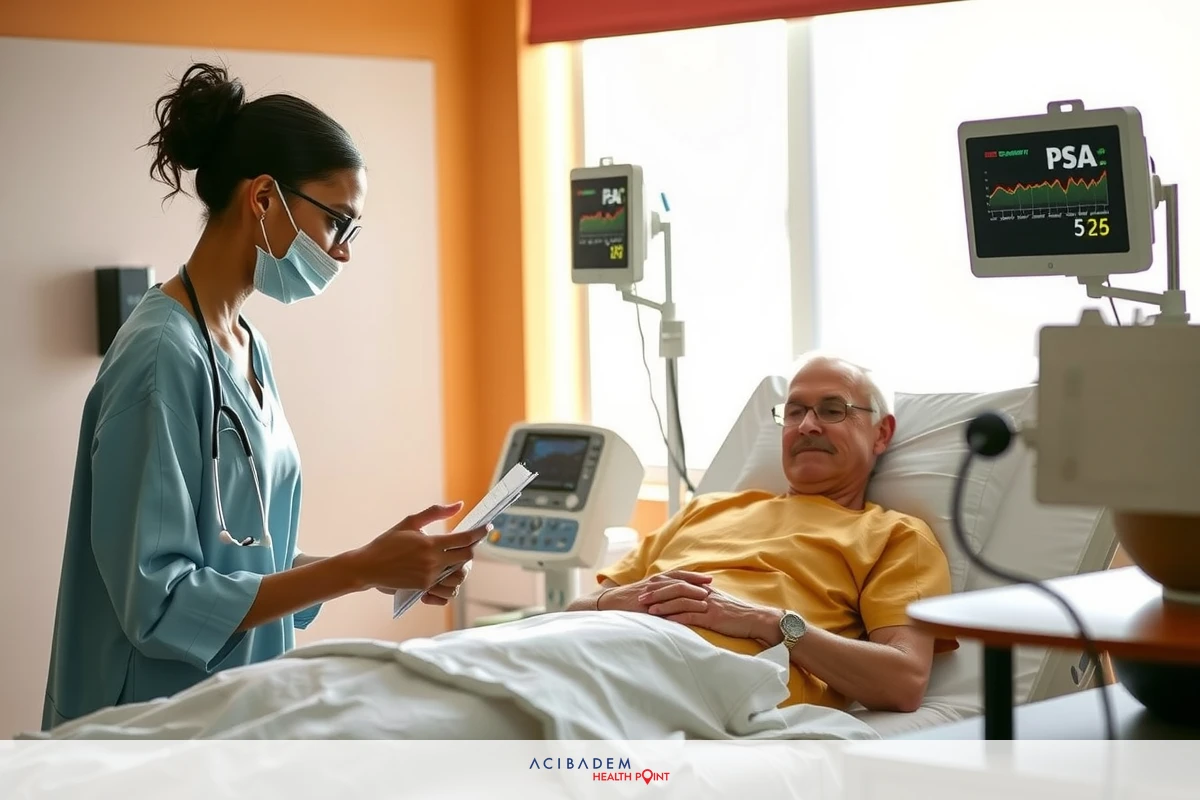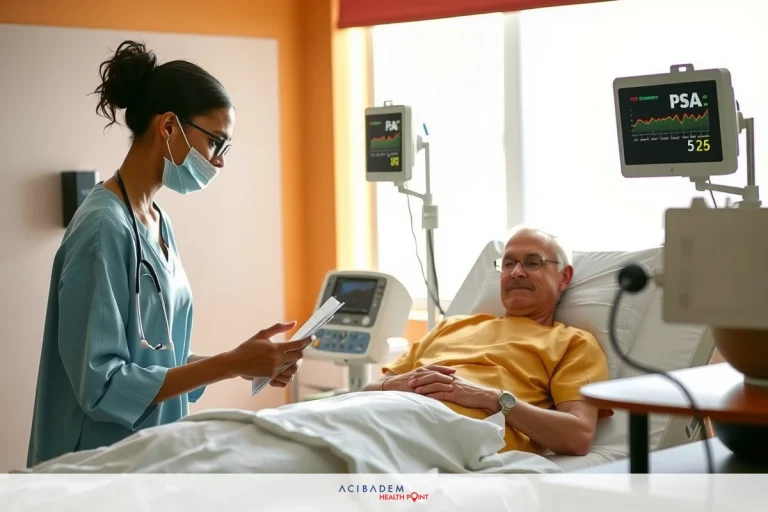How soon after prostate surgery should PSA levels normalize?
How soon after prostate surgery should PSA levels normalize? After a man has prostate surgery his PSA levels can take time to settle. Many men worry about their health and how long it will be before they feel normal again. It’s important for patients to know what to expect during recovery. Doctors monitor PSA levels closely after surgery because it helps them see how well the body is healing. Getting back to normal takes patience and often involves following doctor’s advice.PSA tests are a regular part of life for those who have had prostate cancer. After treatment these tests become even more frequent as doctors check on progress. Men might wonder why there’s so much focus on these numbers and what they mean for their future health. Rest assured that monitoring is key in making sure everything is going according to plan.
It usually takes some weeks before your body adjusts after having an operation like this one. Each person heals at their own pace which means no two recoveries are alike. Speak with your healthcare provider if you’re concerned about your PSA levels or anything else regarding your post-surgery health journey. They’re there to help guide you through this period of healing and adjustment.
Recovery Period
After prostate surgery the recovery period is as important as the procedure itself. It’s a time when your body begins to heal and adjust. The first few weeks are crucial for ensuring everything goes smoothly. This period often involves rest, managing pain, and slowly getting back into daily routines. Your doctor will give you clear guidelines on what activities to avoid.
It’s normal to wonder when PSA levels will normalize after prostate surgery. Typically it takes several weeks before you see stable numbers in tests. Remember that these timelines can vary based on individual factors like age and overall health. Keep up with scheduled blood tests so your doctor can track progress.
During this recovery stage follow all post-op care instructions from your healthcare team closely. They’re designed to help you heal properly and prevent complications which could delay normalization of PSA levels or recovery progress altogether.
Keep an eye out for signs that might suggest concerns during the recovery phase such as changes in pain levels or unusual symptoms; always report these to your physician promptly. As each week passes after prostate surgery many men start feeling more like themselves again but patience here is key; rushing things won’t speed up healing time even if we wish it would.
PSA Levels After Surgery
Understanding the changes in PSA levels after prostate surgery is key to monitoring recovery. Immediately following the procedure doctors expect a sharp drop in these levels. It’s a sign that the surgery has achieved its primary goal. Over time, with successful healing, PSA numbers should continue to decrease and stabilize.
However it’s not just about waiting for numbers to fall; it’s about consistent trends downward over time. Your healthcare provider will set up a schedule of tests after your prostate surgery. These tests are essential in observing how your body responds post-operation and ensuring no signs of lingering prostate cancer exist.
It can be concerning if PSA levels don’t lower as anticipated or if they start rising again after initially decreasing. If

this happens your doctor may recommend additional testing or interventions to understand why there’s an increase; this could include further scans or even biopsies.
Patience plays an important role during this phase because fluctuations can happen naturally as part of the recovery period. Keep communication open with your medical team throughout this process so you stay informed on what your individual test results mean for your overall health status and long-term outlook following prostate surgery.
Follow-Up Care
Regular follow-up appointments are a safety net for men who’ve had prostate surgery. These check-ups help ensure that PSA levels are moving toward normal. Your doctor uses these visits to catch any issues early on which is crucial for your health. They also provide you with peace of mind and support from medical professionals.
During these follow-up visits expect a review of your recovery progress and discussions about any concerns. You’ll talk about daily activities and how they might affect healing. The healthcare provider can make changes to your care plan based on how well you’re doing. This personalized attention helps tailor post-op care specifically for you.
These check-ups are not just about physical health but also emotional well-being after surgery. Having open conversations with your doctor during follow-up can address worries or questions that arise as PSA levels normalize. Remember that consistent monitoring through scheduled appointments plays a big part in successful long-term outcomes after prostate surgery so keep them at the top of your priority list.
Lifestyle Changes
Adopting a healthy diet is vital after prostate surgery. Foods rich in vitamins and fiber can aid the body’s healing process. Limiting red meat and increasing fruits, vegetables, and whole grains is recommended by health experts. These nutritional adjustments support PSA levels as they normalize during recovery.
Regular exercise also plays an essential role in post-surgery well-being. It boosts blood flow which helps the body heal and regain strength more efficiently. Gentle activities like walking or swimming are good starting points. Always check with your doctor before beginning any new exercise routine.
Staying hydrated is another simple yet effective lifestyle change to implement after prostate surgery. Water helps flush out toxins from the body aiding in quicker recovery while keeping organs functioning properly. Adequate sleep is crucial for proper healing following any surgical procedure including prostate surgery.
Establishing a regular sleep schedule enhances overall recovery by allowing your body ample time to repair itself nightly. Reducing stress through relaxation techniques such as meditation or deep breathing exercises can benefit both mental and physical health post-operation. Managing stress effectively may improve immune function which is important when aiming for normalized PSA levels within a suitable recovery period.
Rehabilitation Tips
Rehabilitation after prostate surgery starts with understanding your body’s new limits. The goal is to return to normal activity levels without causing harm. This process can be gradual and requires patience so it’s important not to rush things. Your healthcare team will provide a plan that outlines which activities are safe for you.
Physical therapy plays a big role in successful rehabilitation from prostate surgery. A therapist can guide you through exercises tailored to your needs helping restore strength and flexibility safely. These sessions may also focus on pelvic floor muscles which support the bladder and bowel functions. It’s essential to keep up with the exercises at home as recommended by your physical therapist.
Consistency in performing these movements will contribute significantly toward regaining pre-surgery activity levels. Pain management should be part of any post-prostate surgery rehabilitation program. If pain is hindering progress speak up. Your doctor might adjust medications or suggest other methods for relief.How soon after prostate surgery should PSA levels normalize?
Remember that mental health is just as crucial as physical recovery during this time. Seeking support from friends, family, or even professional counselors can make navigating the recovery period much easier on both mind and body.
Frequently Asked Questions
How quickly should I expect my PSA levels to drop after prostate surgery?
Typically PSA levels begin to decline soon after surgery and should continue decreasing over the following weeks. Your doctor will monitor these changes.
What can I do during my recovery period to help normalize my PSA levels?
Focus on maintaining a healthy diet, getting regular light exercise as approved by your healthcare provider, and follow all post-surgery instructions closely.
When can I resume normal activities after prostate surgery?
Recovery time varies for each individual but it's important not to rush. Follow your doctor’s advice on gradually increasing activity levels based on how you feel and heal.









